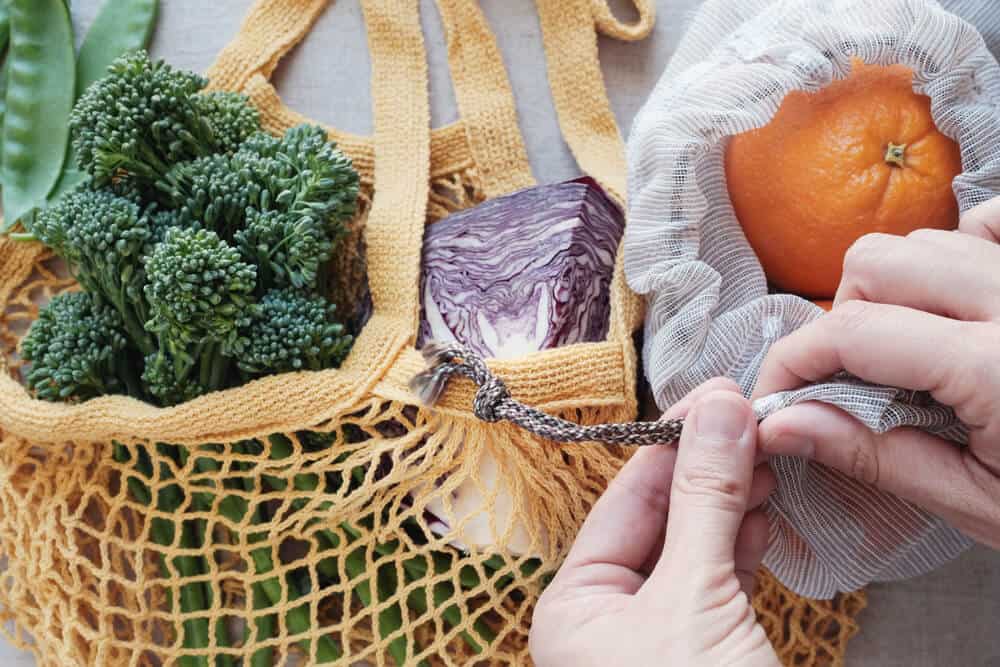Zero waste shopping is good for the environment and great for your purse strings! We’re revealing the best tips in this article!
Here are 8 zero waste shopping tips
- Stick to a shopping list
- Bulk buy
- Reuse your bags
- Choose reusables over disposables
- Start composting
- Choose metal, paper, or glass
- Buy as much loose produce as possible
- Shop locally
So here are just some of the things you can do to begin zero waste shopping. Are you ready to find out more about how you can make zero waste your new norm? Then make sure you check out the rest of this article!
What Is Zero Waste Shopping?
Homeowners across the nation are getting on board with zero waste shopping. It is a great way to do something for the planet and to save a little money.
But what exactly is zero waste shopping?
This is it in a nutshell. Zero waste shopping minimizes packaging, eliminates plastic bag use, and promotes natural products.
Here’s everything that zero waste shopping entails.
- Minimizing and eliminating packaging. You do this by using packaging that is easy to recycle. You also cut right back on the amount of packaging that you use. This reduces the amount of damage that is done to the planet.
- Encouraging the use of home containers. You can fill your own jars and containers instead of using plastic bags. Canvas or other material bags are also great.
- Natural cleaning and beauty products. Cleaning and beauty products are made from environmentally-friendly materials. They are packaged in containers that you can use again.
How to Buy Groceries Zero Waste
Are you ready to start zero waste shopping but are not too sure how? Then make sure you take a look at the following 8 tips. These will surely start you off on the steady track to cutting down on waste in your grocery shopping.
- Stick to a Shopping List
Here is the first step to zero waste shopping, sticking to a shopping list.
Now, I have a brain like a sieve. If I don’t write down exactly what I need, I have the potential to come back from the supermarket empty-handed.
So this step is super helpful for me.
But notice here, that the emphasis is not on making a list alone. It is on sticking to it. Why is this important?
When you write a shopping list, plan everything you and your family will need for the week.
(Tip, don’t make this list while you’re hungry!) Making a list can help you plan and even control how much snacking your family does throughout the day.
It will also stop you from buying items unnecessarily in the supermarket.
When you get to the supermarket, be strict with yourself! If you find something that’s not on your list, resist the urge to buy it! This will help you cut down on food waste.
- Bulk Buy
Bulk buying is our second tip for zero waste shopping. What do we mean by bulk buying?
- Buying wholesome food items in large quantities
- Buying food items in the biggest unit possible
Bulk buying is more than stockpiling packets of rice, flour, and other non-perishables.
It is about buying these items in as large a packet as you can find them.
Swap one or two-kilo bags of flour for five or even ten-kilo bags.
This will help you to cut down on the amount of packaging that you bring through the door.
It is usually easy to find non-perishable items in massive bulk buy bags. These include
- Flour
- Rice
- Pasta
- Oats
- Pulses
The good news is that large bulk buy items usually come at a more discounted price.
So buying in bulk will help you do your bit for the environment and save you money!
- Reuse Your Bags
Plastic bags or any non-reusable bag definitely go against the rules of zero waste.
It is great that most supermarkets are charging for plastic bags.
They are also encouraging us to swap plastic for paper. But we can do more.
Here’s what you can do to eliminate your use of plastic carrier bags.
- Buy canvas, or material, heavy-duty shopping bags. Take these with you when you go shopping. Sure, it’s something else to think about. But once you get into the routine, it’ll become second nature to you.
- Carry reusable jars and containers to the supermarket. You can use these to buy pulses, nuts, or anything else you buy by weight. You may have to take your containers to customer service before you start to fill them. This is so that they can weigh them for you.
- Pack your shopping back into your cart. Once you have finished paying, put your shopping back into the cart. You can then wheel it to your car and put it straight in your trunk.
- Choose Reusables Over Disposables
Pretty much everything comes disposable these days. Disposable cleaning cloths, plates, cups, napkins, gloves.
You name it, it can probably be tossed after one use. So what can you do to swap disposables for reusables?
Here are a couple of common disposable household items that you can swap for reusable ones.

| Disposable Item | Reusable Item |
|---|---|
| Cleaning cloths Cups and plates Napkins Rubber gloves | Use cleaning cloths made out of thick material that you can wash after you have used them Instead of buying thin plastic plates and cups, buy paper ones that you can recycle. Or buy a set that you can reuse. Use cloth napkins instead of throw-away paper napkins. Place them in the washing machine to clean them Buy heavy-duty rubber gloves instead of thin, one-use gloves. They last longer |
- Start Composting
Composting will help you find a use for pretty much everything on your fruit and vegetable shelf.
Make sure you save your peels, cores, tops, and tails to put on your compost heap.
Why is this such a good idea? Compost promotes great plant growth. It could help you to save on fertilizer and plant food.
- Choose Metal, Paper, or Glass
Do you like me, wince when you see something packed in brightly colored plastic that could do just as well in metal, paper, or glass? Well, we can all do our little bit about that when shopping.
When shopping, as far as possible, opt for items that come in metal, paper, or glass containers.
This may mean avoiding certain brands.
But there is usually at least one conscientious brand out there that will stock what you want in a zero waste way.
What if you have no choice but to pick plastic? Then choose the item with the least amount of plastic packaging. That means a bag of potato chips that is 80% air 20% chips is a no-go.
I mean it’s just criminal anyway!
- Buy as Much Loose Produce as Possible
Buying loose produce is another fantastic way of zero waste shopping. It helps you to completely eliminate packaging for certain food.
To be ready for loose produce make sure you have the following things to hand.
- Canvas or material bags
- Reusable containers
- Glass jars
But which items are usually available to buy loose? When shopping in a zero waste store, you will find loads of food items that are available by the kilo.
This is awesome not just for the environment, but it also helps you cut back on your food bill. You’ll only buy exactly the amount you need.
But what if you are shopping at your average supermarket? Then there will be less loose produce available. But you should still be able to find the following items loose
- Fruit
- Vegetables
- Pulses
- Sweets
- Nuts
- Seeds
- Grains
- Shop Locally
The final tip on our list is one of the most important things you can do. That is to shop locally.
What does shopping locally mean? Here are a couple of examples.
- Shopping at farmer’s markets
- Buying locally produced jam, honey, and other goods in your neighborhood
- Supporting small businesses
- Buying fruit and vegetables that are in season
But why is shopping locally so important?
Shopping locally is important because every item we buy has a carbon footprint.
That carbon footprint increases or decreases depending on how far an item has had to travel to get to you.
So, if you buy tropical fruit in the middle of winter, it’ll no doubt have traveled halfway across the world to get to you.
This will give that one piece of fruit a massive carbon footprint. This is not good for the environment.
Conclusion
Doing our bit for the planet is not something that has to be overly time-consuming.
Zero waste shopping is something that every household can do. It will help you do your bit for a greener tomorrow.
But it will also help you save a couple of pennies along the way.
Zero waste shopping helps you to cut down on your food bill. It makes sure that you only pay for exactly what you need.
I’m sure the tips in this article have helped you to master the art of zero waste shopping.
Has this article been useful to you? Then make sure you check out some of our other free guides on our website!



